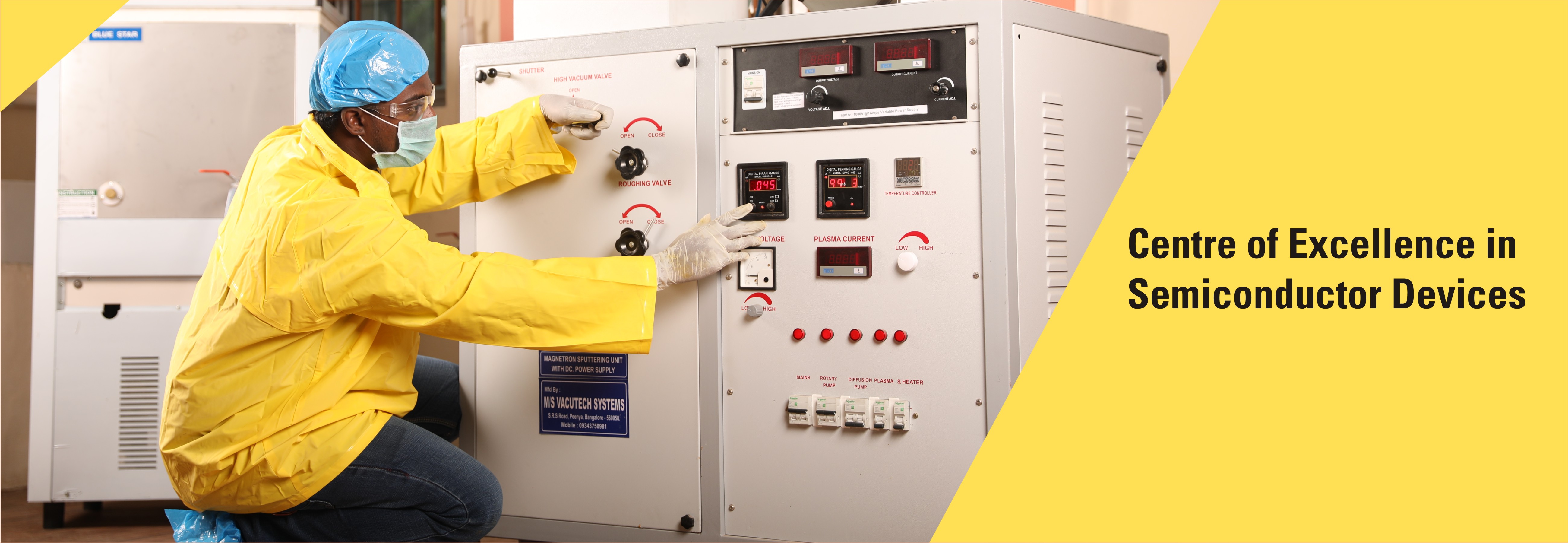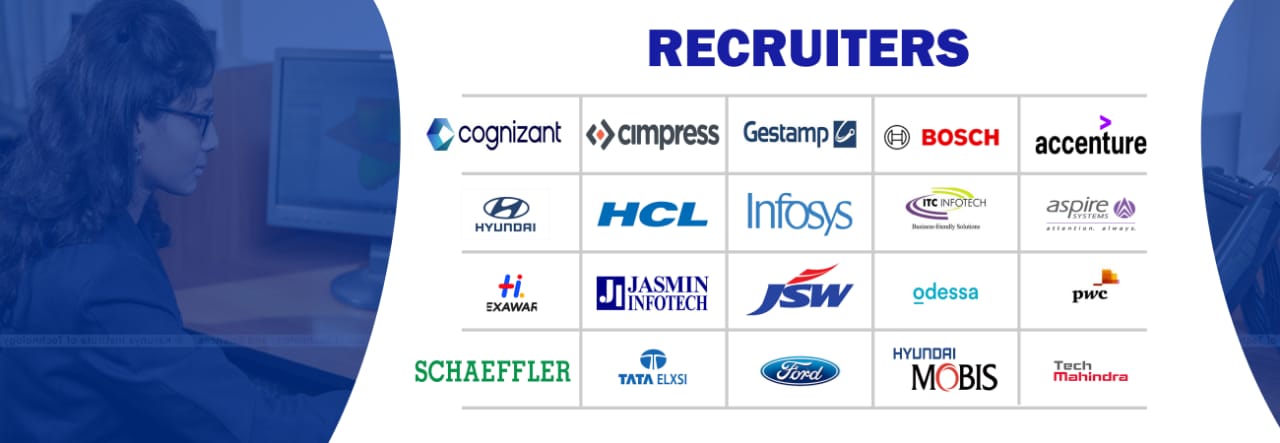


Division of Electronics and Communication Engineering
History
The Division of Electronics and Communication Engineering (ECE) was established in the year 1986 and is accredited by NBA. The department offers undergraduate (UG), post- graduate (PG) and Ph.D. degree programs. The department has well-equipped laboratories in the areas of Electronics, Communication, IoT, VLSI, Artificial Intelligence and Data Science and is well-connected with industries. The department has signed MoUs with industries like Samsung R&D Institute India-Bangalore Pvt. Ltd., Altair Engineering India Pvt. Ltd., M/S Jasmin Infotech Private Limited, Intel Technology India Pvt. Ltd., Test and Verification Solutions India Pvt. Ltd, and EinNel Technologies, India.
The department has experienced and committed faculty members and is on the upward trajectory in terms of research. The focus of the department is to publish research papers only in WoS/Scopus journals with high impact factors. The available data stands as a testimony to the quantity and quality of our publications. Collaborative research work is carried out with top institutions outside India, which is an added advantage. A significant number of funded projects have been received from various agencies such as DST, DRDO, ISRO,CSIR and ICMR to the tune of INR 2.7 crore. Consultancy works in cutting-edge technologies such as antenna fabrication and machine learning are being carried out in the department. The rise in the number of published patents also validates the quality research in ECE department.
The faculty and students are also associated with professional bodies like IEEE and IETE to enhance their research activities. Further, the students of the department are encouraged to take up in-plant trainings, summer internships and full-semester project work at industries and the department ensures that all students who are eligible are placed on campus.
Our Vision
Raising competent Electronics and Communication engineers and technocrats to solve the problems of human society.
Our Mission
To raise engineers and researchers with technical expertise on par with international standards, professional attitude and ethical values, having the ability to apply acquired knowledge & skills for a productive career and service to humanity.
Graduates will have ability to:
- Apply the knowledge of mathematics, science, engineering fundamentals, and an engineering specialization to the solution of complex engineering problems.
- Identify, formulate, review research literature, and analyze complex engineering problems reaching substantiated conclusions using first principles of mathematics, natural sciences, and engineering sciences.
- Design solutions for complex engineering problems and design system components or processes that meet the specified needs with appropriate consideration for the public health and safety, and the cultural, societal, and environmental considerations.
- Use research-based knowledge and research methods including design of experiments, analysis and interpretation of data, and synthesis of the information to provide valid conclusions.
- Create, select, and apply appropriate techniques, resources, and modern engineering and IT tools including prediction and modeling to complex engineering activities with an understanding of the limitations.
- Apply reasoning informed by the contextual knowledge to assess societal, health, safety, legal and cultural issues and the consequent responsibilities relevant to the professional engineering practice.
- Understand the impact of the professional engineering solutions in societal and environmental contexts, and demonstrate the knowledge of, and need for sustainable development.
- Apply ethical principles and commit to professional ethics and responsibilities and norms of the engineering practice.
- Function effectively as an individual, and as a member or leader in diverse teams, and in multidisciplinary settings.
- Communicate effectively on complex engineering activities with the engineering community and with society at large, such as, being able to comprehend and write effective reports and design documentation, make effective presentations, and give and receive clear instructions.
- Demonstrate knowledge and understanding of the engineering and management principles and apply these to one’s own work, as a member and leader in a team, to manage projects and in multidisciplinary environments.
- Recognize the need for, and have the preparation and ability to engage in independent and life-long learning in the broadest context of technological change.
Testimonies by Our Students
 Mr. L. K Livingstone B.Tech ECE(2020-24) Placed in Tejas Network and Accenture
Mr. L. K Livingstone B.Tech ECE(2020-24) Placed in Tejas Network and Accenture Mr. Eajarla Reddy Sreekar B.Tech ECE(2020-24) Placed in Bi3, Intellipath and Jet Aerospace
Mr. Eajarla Reddy Sreekar B.Tech ECE(2020-24) Placed in Bi3, Intellipath and Jet Aerospace Centre for Research
The centre of excellence in VLSI Design was established in the department in agreement with M/S Test & Verification Solutions India Pvt Ltd., India on 2018. The centre has a state-of-art facility with H-SPICE proficiently supported with high end Linux Platforms. The centre enhances the student’s technical expertise in VLSI testing & verification. The centre is used by faculty and students for internships, projects and placements. The centre also sponsors a post graduate programme in VLSI Design.
Centre for Research in Semiconductor DevicesThe centre of Research in Semiconductor Devices was established in the Division in the year 2019. The centre is used extensively for fabrication and modeling of semiconductor devices in the micro and nano scale level to meet Industrial needs. Collaborative research projects with Division of Space (ISRO), Ministry of Defence (DRDO) and Division of Electronics are carried out in this centre.
News and Events
ECE and ECM Admissions 2024 Open
Contact Us
Dr. D. Jude Hemanth,
Professor and Head,
Division of ECE
E-mail: [email protected],
Phone: 0422-2614393
